Research in Koita region, October - November 2021
Report by Essau Goasa Homoka
The Koitabuans as known in the history have migrated from the mountains of the Koiari people. The group then spread along much of the Papuan coastline, particularly around present-day capital, Port Moresby. A few Isu Koiaris live on the east side of the Port Moresby, while some Koitabuans live on the west side. Others live around our national capital, Port Moresby. Koitabuans differ from the Motuans because the former are known as hunters, while the Motuans are known as fishermen. Nowadays, all have changed due to the intermarriages, and both groups go hunting, fishing, gardening, etc., and most of all, live among each other.
The sad fact is many Koitabuan villages now speak Motu, while their mother tongue, the Koita language, is fading away in their village. Today it is mostly elders that speak the Koita language, rather than the young generation. Due to time limitations, the Koita research was mostly conducted around Redscar Bay, namely in Papa, Kido, Gorohu, and Gerebaga villages.
Koita is a Trans-New Guinea language spoken by over 3000 people; while Motu is an Austronesian language, spoken by c. 39,000. A simplified version of the latter (known as Hiri Motu or Police Motu) was used in the southern parts of the country as a lingua franca.
Essau Goasa Homoka researched the Koita recordings in the True Echoes project. Essau has a Bachelor of Business Management degree from Divine Word University and lives in Papa village. He has long been active in volunteer and church work.
Recordings
Six interviewees contributed to new research on the project: Dicky Koiari, Fagu Aguna, Tom Gadiki, Biru Kaika, Ugufa Ogote, Karau Vake.
A couple nape songs were recorded. These are sung by warriors upon their success when returning from a battle. When villagers hear such songs, they know the fight has been a success; if the warriors return in silence, they know they have lost. Another new recording concerns disagreements over who made a girl pregnant, which is only revealed when the baby is born.
Soru Eke-ke
Recorded on 21 October 2021 in Kido, Central Province
(1 minute 48 seconds)
Soru eke – ke
Kaia vare oh
Soruva moveave
Eva – eva vai – a
Soru eke – ke
A performance of a nape song with drum accompaniment. Au Soruke Ege Dainehege Auki Ga’a E Kinu translates as ‘The men with the bravest heart in fighting cause him Victory’. This song is performed by Fagu Aguna, an 86-year-old man of the Isuharigana clan, and Tom Gadiki, a 75-year-old man of the Mavara Vamaga clan.
Ubuna Ro Ro song (Two boys dating a girl)
Recorded on 11 November 2021 in Gorohu, Central Province
(1 minute 31 seconds)
A performance of the song Ubuna Ro Ro with percussion accompaniment. The singer is 81-year-old Karau Vake of the Gaibu Dubu clan.
Kaukau E Kaukau E Vame Vame Kaukau E_E
E Kaua Sia Doninai Doni Avai E_E
[repeat]
Two young men were dating a girl, one was her real boyfriend and the other guy was her occasional lover. Both boys slept with the girl on different occasions and she became pregnant. Some blamed the boyfriend, while others blamed the lover. They decided to just wait until the child is born to see who the father is.
After the girl gave birth and the baby grew up into a toddler, the people saw the baby and concluded it was the lover that made her pregnant. They had blamed the boyfriend for no reason. “Kaukau” means blame.
Historical Recordings
The following cylinders were researched by Essau Goasa Homoka from the Alfred Cort Haddon 1898 Expedition (Torres Strait and British New Guinea) Cylinder Collection (C80 British New Guinea).
| British Library shelfmark | Recording title | Performer name | Recording location | Recording date | Content description | Performer description | Recording notes | Languages | Genre | Recordist | Recording length | Recording trip | Description of cylinder | Collection title | Cylinder location | Images of cylinder containers / documentation | Related print publication: | Related print publication: | Related print publication: | Related print publication: | Related print publication: | Related print publication: |
|---|---|---|---|---|---|---|---|---|---|---|---|---|---|---|---|---|---|---|---|---|---|---|
| C80/1062 | Koitapu sentences and Motu Hymn | Ahuia Ova (speaker, singer, male) | Port Moresby, British New Guinea | 6 July 1898 | 1. Announcement: "Koitapu sentences and Motu Hymn." 2. Solo male speech. 3. Unaccompanied male vocal solo. | Reasonable quality recording but with surface noise due to light mould on cylinder. | Koitabu and Motu | Field recordings; Speeches; Hymns | Ray, Sidney | 3'01" | Alfred Cort Haddon 1898 Expedition, British New Guinea | Brown wax cylinder | Alfred Cort Haddon 1898 Expedition (Torres Strait and British New Guinea) Cylinder Collection | British Library | 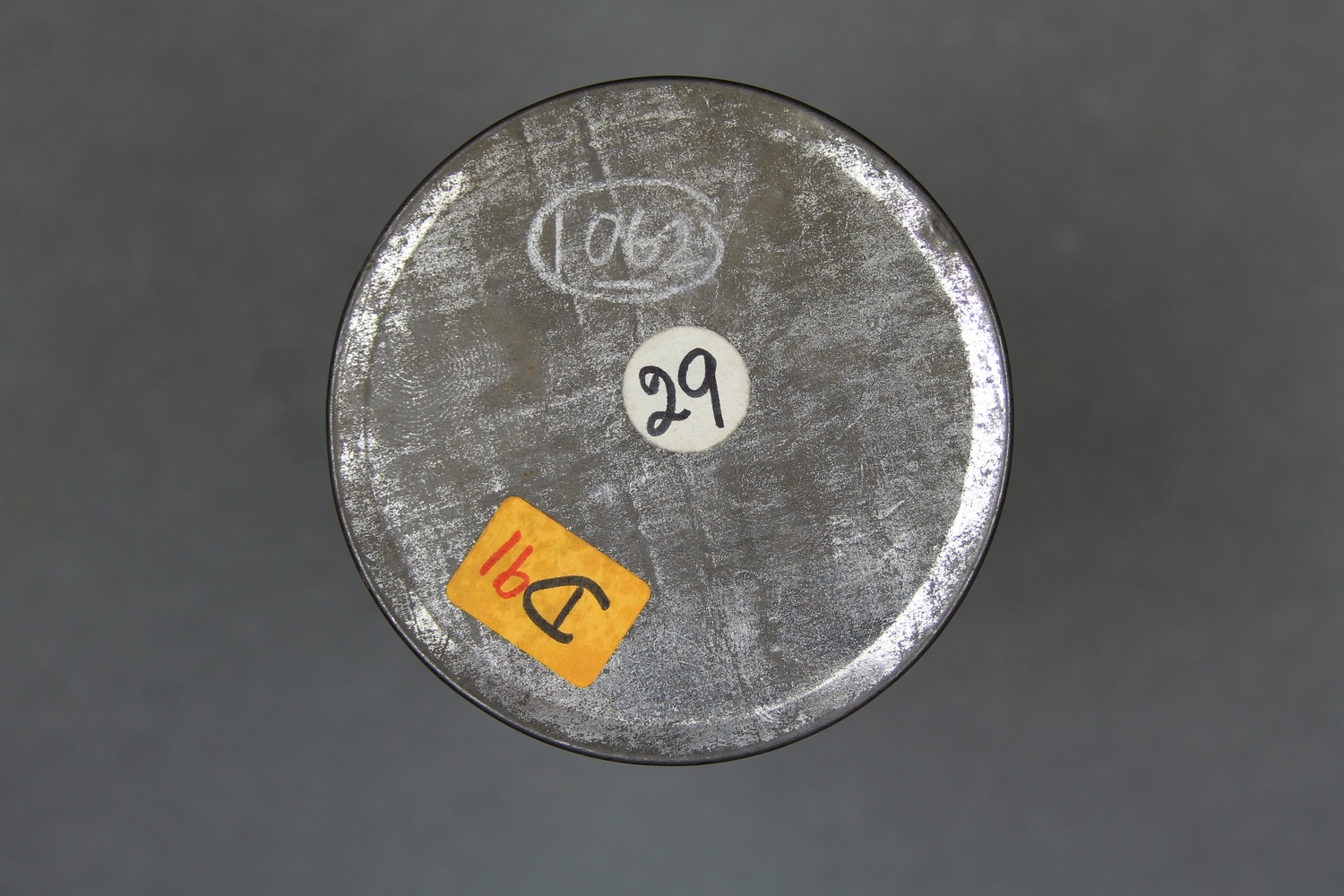 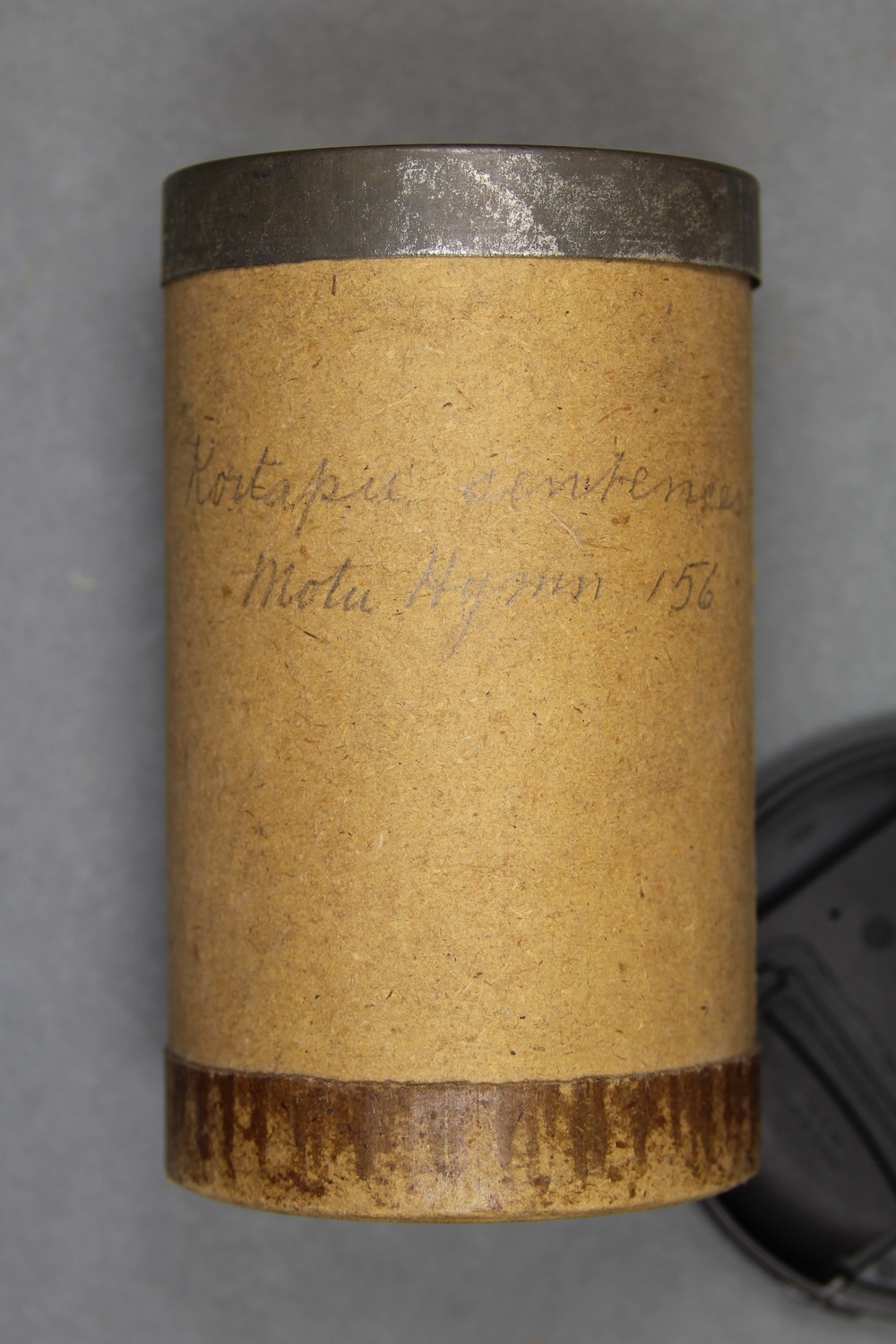 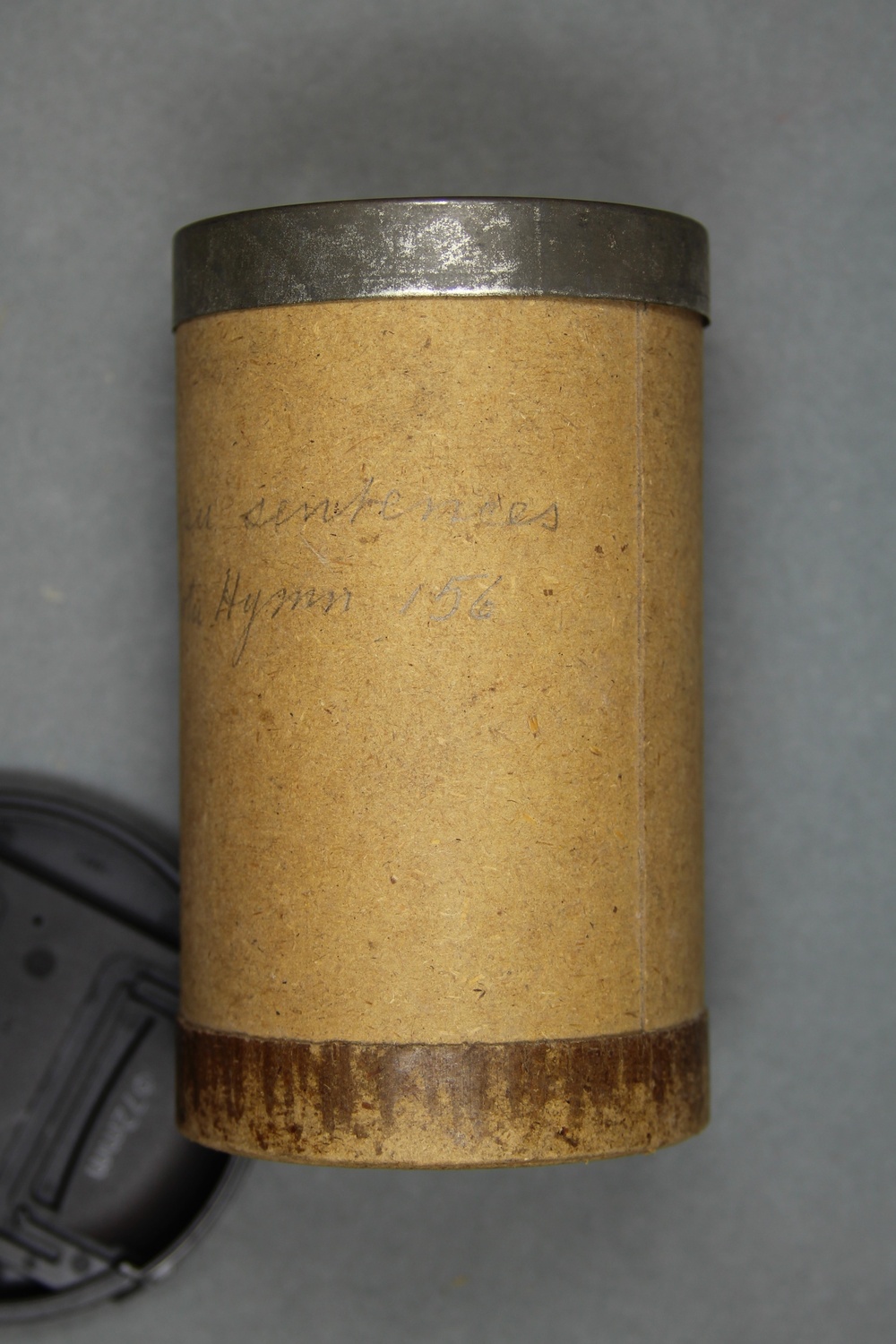    | |||||||
| C80/1455 | Hymn 41 Glory | Unidentified (male chorus) | British New Guinea | 27 May 1898 – 1 October 1898 | 1. Unaccompanied male vocal group. | Reasonable quality recording but some surface noise. | Field recordings | Ray, Sidney | 2'12" | Alfred Cort Haddon 1898 Expedition, British New Guinea | Brown wax cylinder | Alfred Cort Haddon 1898 Expedition (Torres Strait and British New Guinea) Cylinder Collection | British Library | 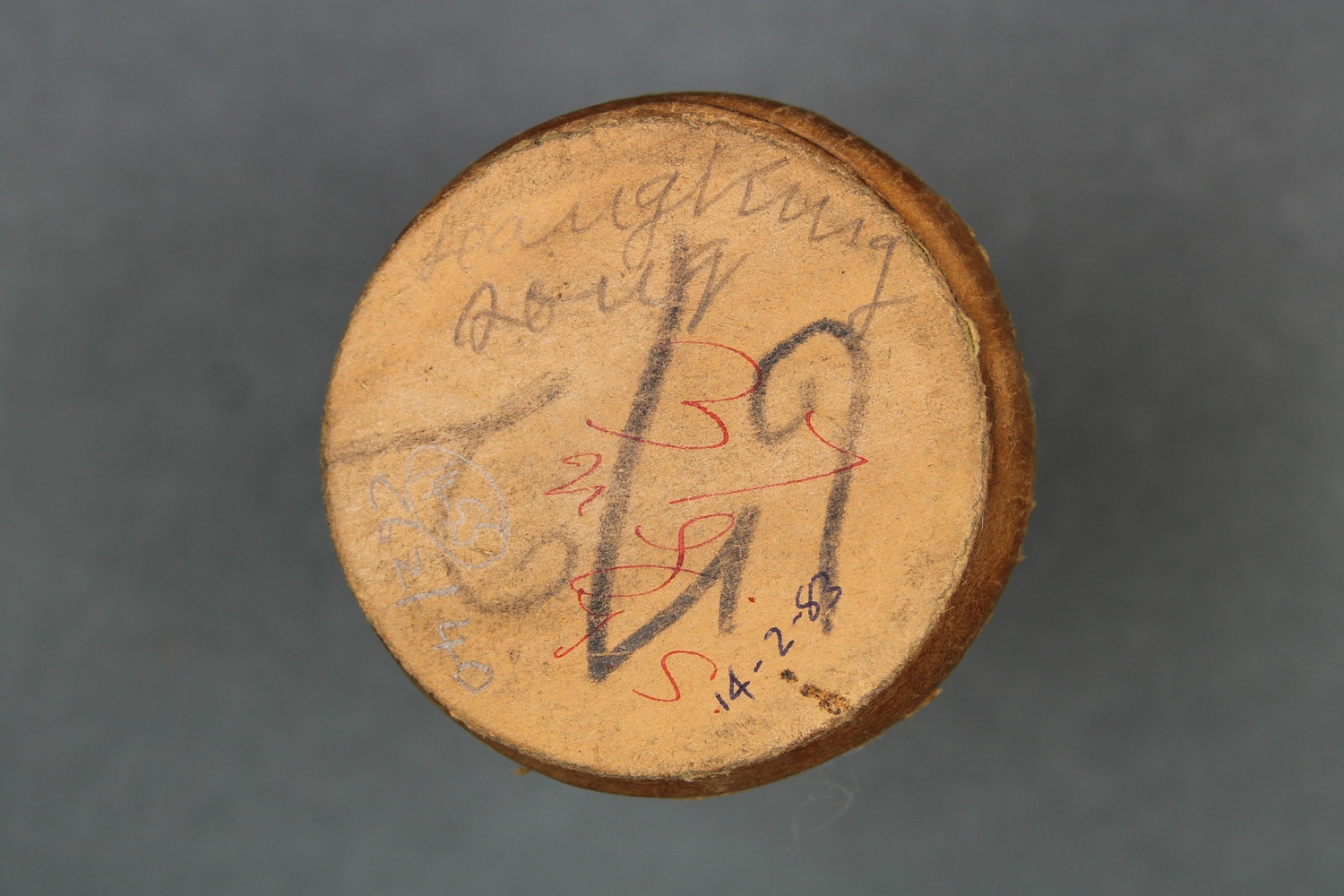 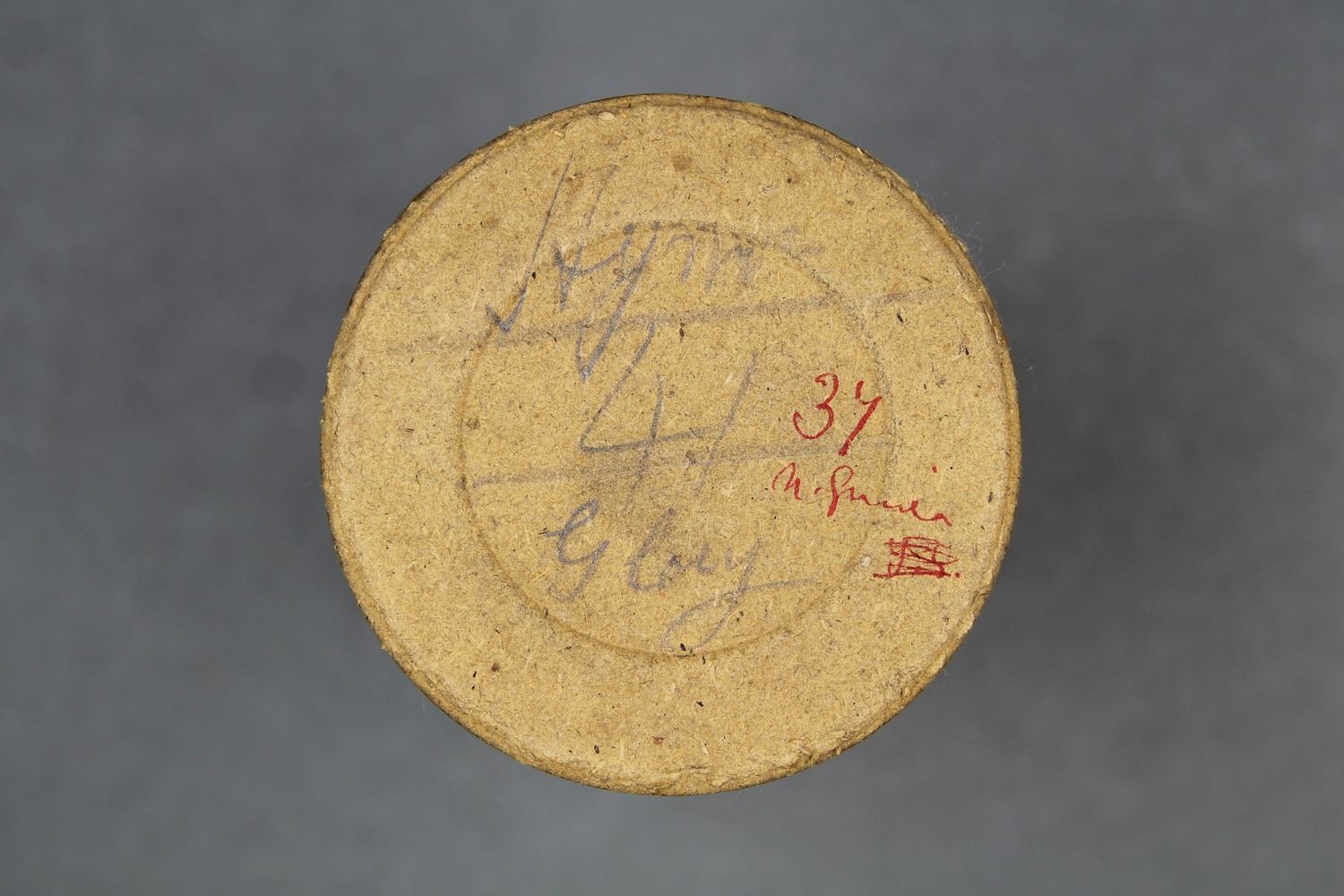     | ||||||||
| C80/1456 | Lakatoi Song | Unidentified (male chorus) | Port Moresby, British New Guinea | 20 June 1898 – 6 July 1898 | 1. Announcement: "A Lakatoi Song." 2. Unaccompanied male vocal group. | Reasonable quality recording but with weak signal and surface noise. | Motu (archaic language) | Field recordings; Sailing; Trade | Ray, Sidney | 2'20" | Alfred Cort Haddon 1898 Expedition, British New Guinea | Brown wax cylinder | Alfred Cort Haddon 1898 Expedition (Torres Strait and British New Guinea) Cylinder Collection | British Library | 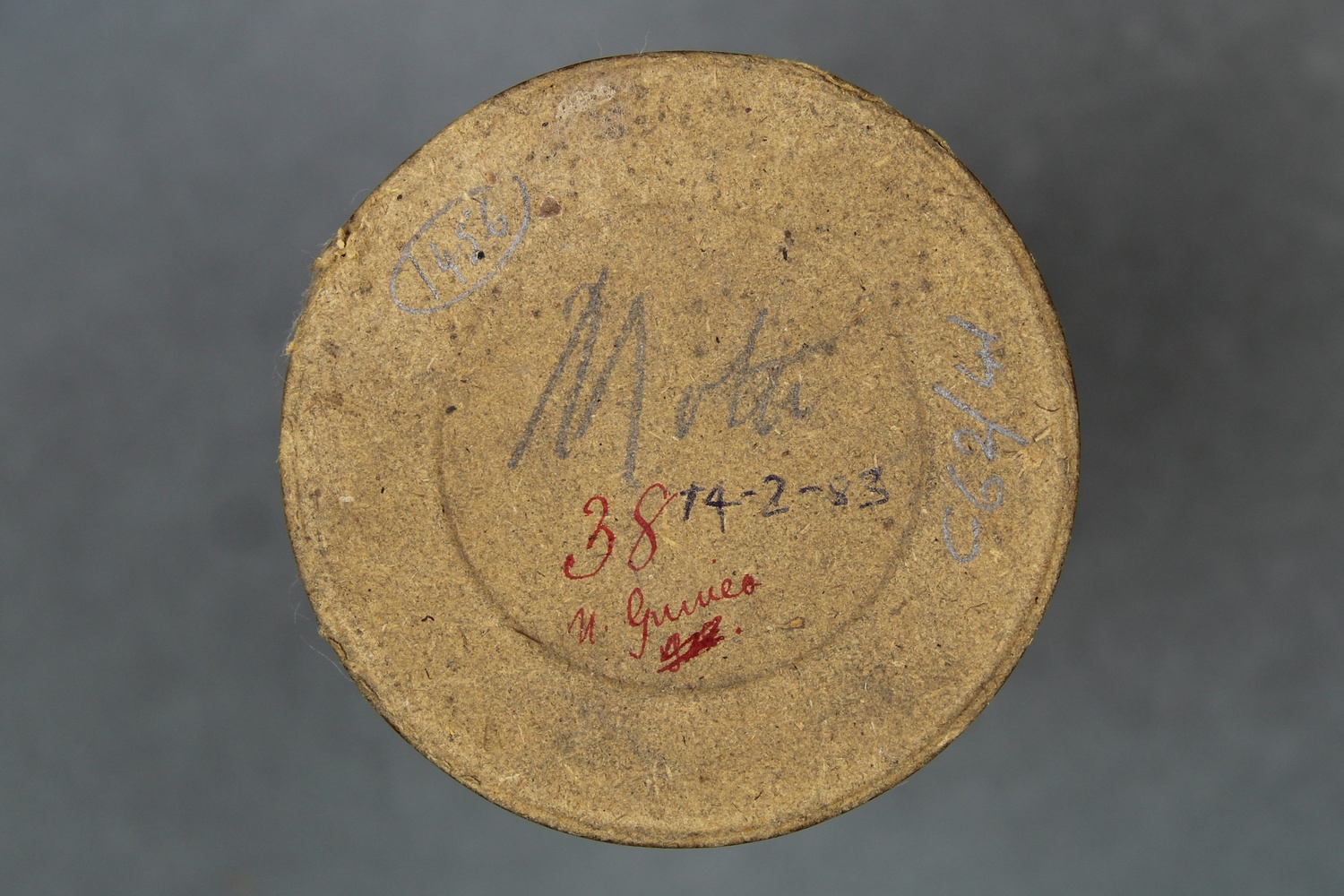 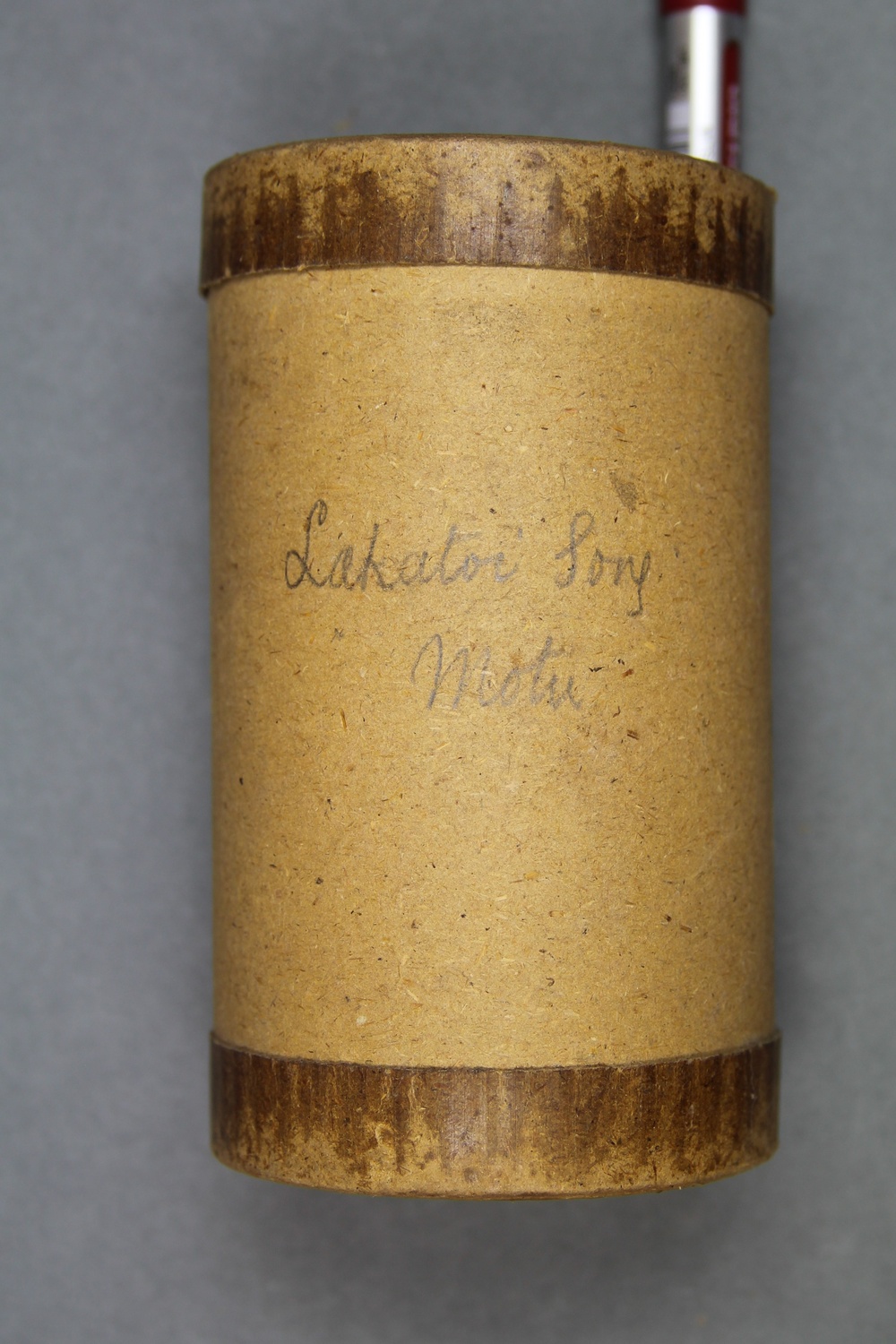     | |||||||
| C80/1457 | Hymn | Unidentified (male chorus) | British New Guinea | 27 May 1898 – 1 October 1898 | 1. Unaccompanied male vocal group. | Reasonable quality recording but with surface noise. | Field recordings; Hymns | Ray, Sidney | 2'13' | Alfred Cort Haddon 1898 Expedition, British New Guinea | Brown wax cylinder | Alfred Cort Haddon 1898 Expedition (Torres Strait and British New Guinea) Cylinder Collection | British Library | 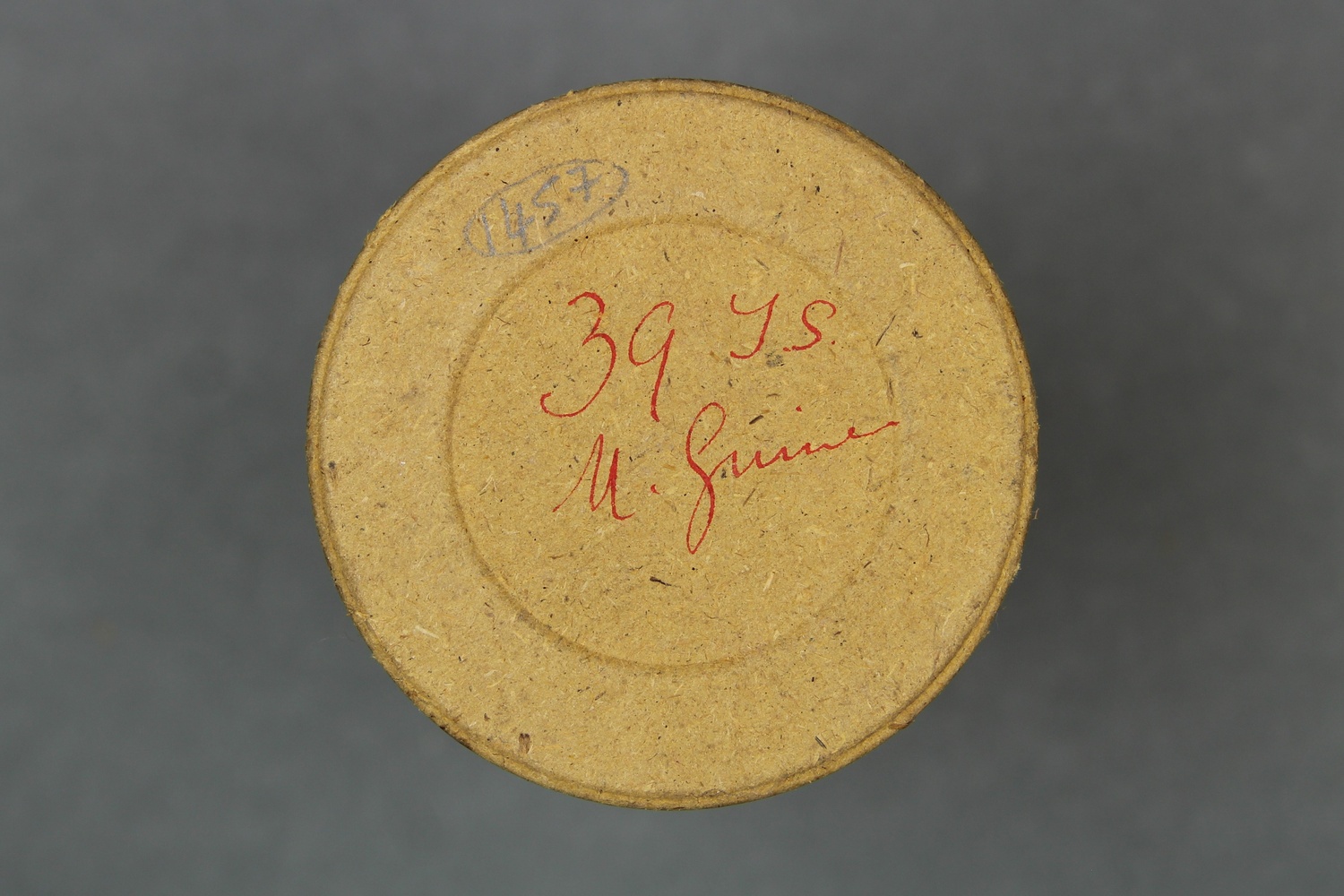 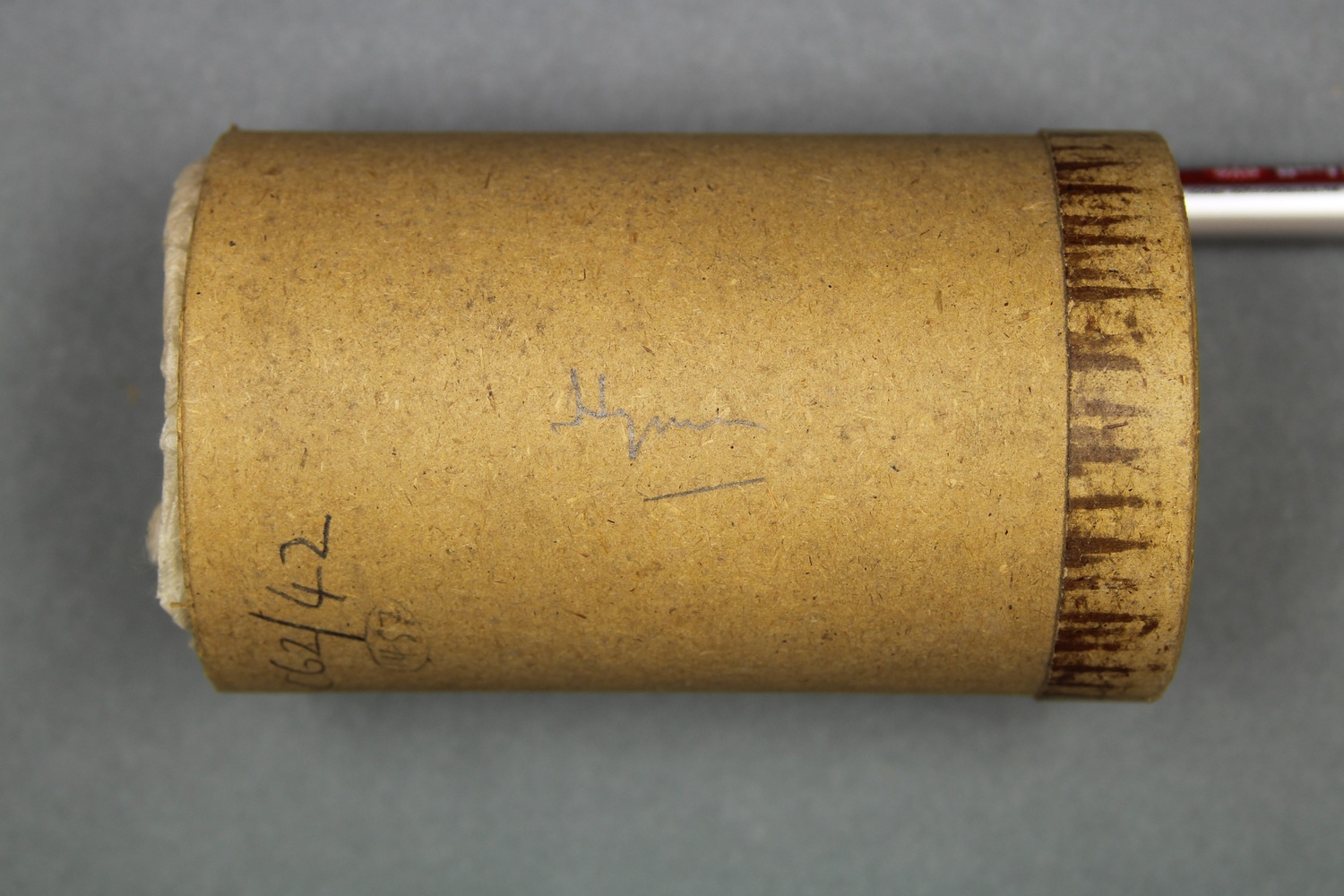     | ||||||||
| C80/1458 | Hymn No.23 Wareham | Unidentified (singer, male) | British New Guinea | 27 May 1898 – 1 October 1898 | 1. Unaccompanied male vocal solo. | Reasonable quality recording but with some surface noise. | Field recordings; Hymns | Ray, Sidney | 1'50" | Alfred Cort Haddon 1898 Expedition, British New Guinea | Light brown wax cylinder | Alfred Cort Haddon 1898 Expedition (Torres Strait and British New Guinea) Cylinder Collection | British Library | 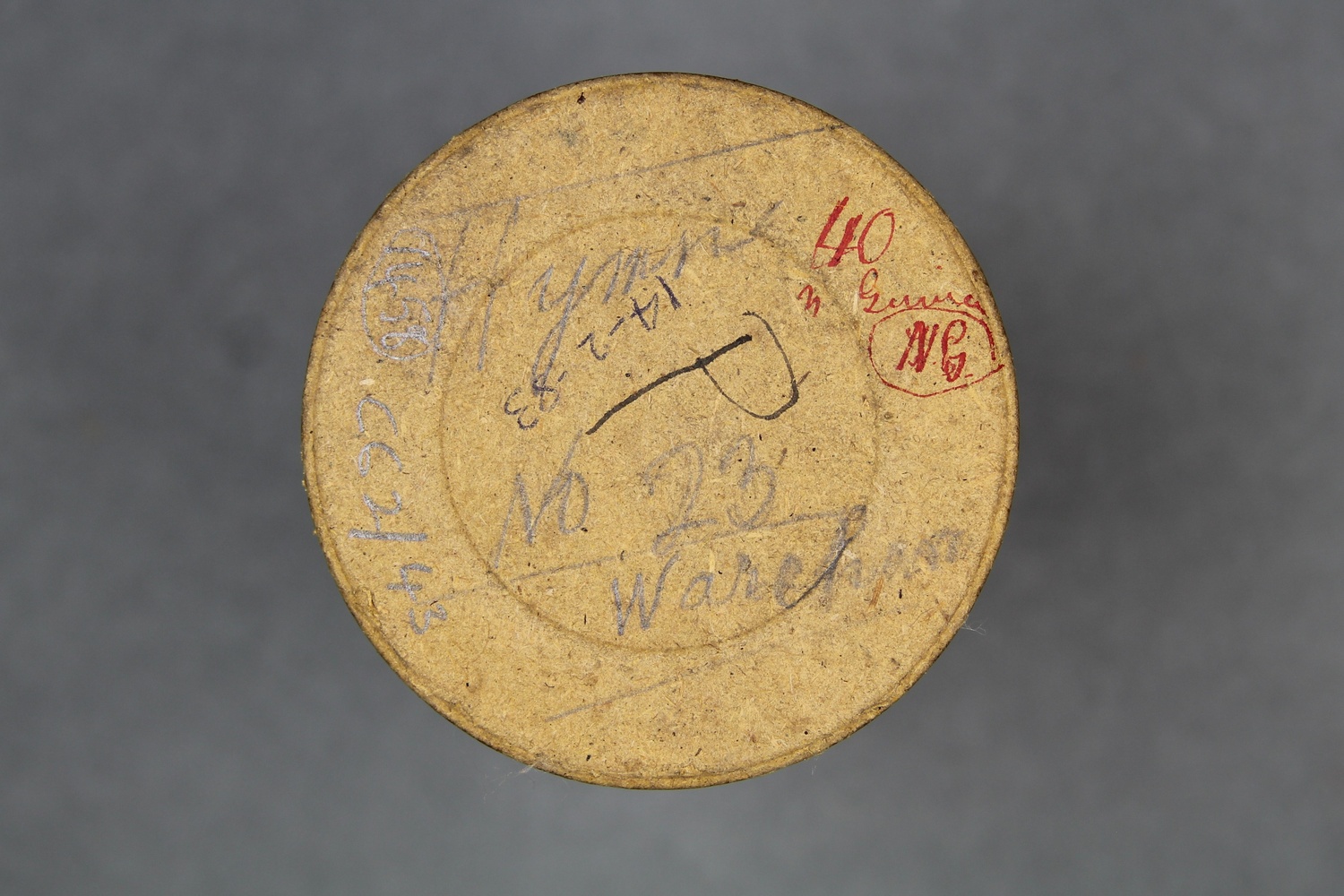 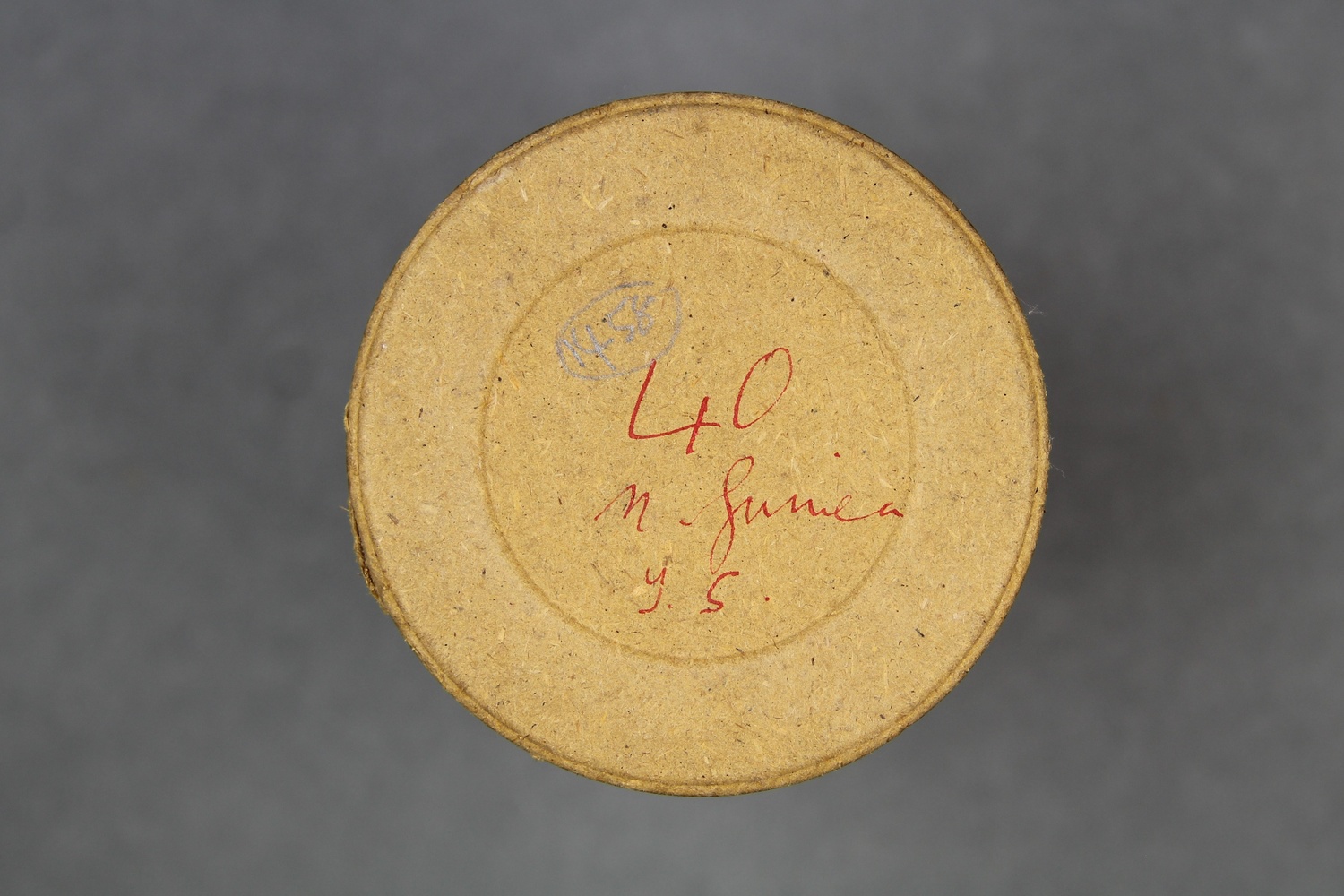     |
The following cylinders were researched by Essau Goasa Homoka from the Daniels Ethnographical Expedition to British New Guinea 1904 Cylinder Collection (C62).
| British Library shelfmark | Recording title | Performer name | Recording location | Recording date | Content description | Performer description | Recording notes | Languages | Genre | Recordist | Recording length | Recording trip | Description of cylinder | Collection title | Cylinder location | Images of cylinder containers / documentation | Related print publication: | Related print publication: | Related print publication: | Related print publication: | Related print publication: | Related print publication: |
|---|---|---|---|---|---|---|---|---|---|---|---|---|---|---|---|---|---|---|---|---|---|---|
| C62/1415 | Waura Koita | Kabur (singer, male) | Port Moresby, British New Guinea | October 1904 | 1. Announcement: "Waura, a Koita song, sung by Kabur[?], Port Moresby, October 1904." 1. Unaccompanied male vocal solo. A song sung at dances and feasts. | Reasonable quality recording but with surface noise. | Koitabu | Field recordings | Seligman, Charles Gabriel | 3'40" | Daniels Ethnographical Expedition to New Guinea 1904 | Brown wax cylinder | Daniels Ethnographical Expedition to New Guinea 1904 Cylinder Collection (C62) | British Library | 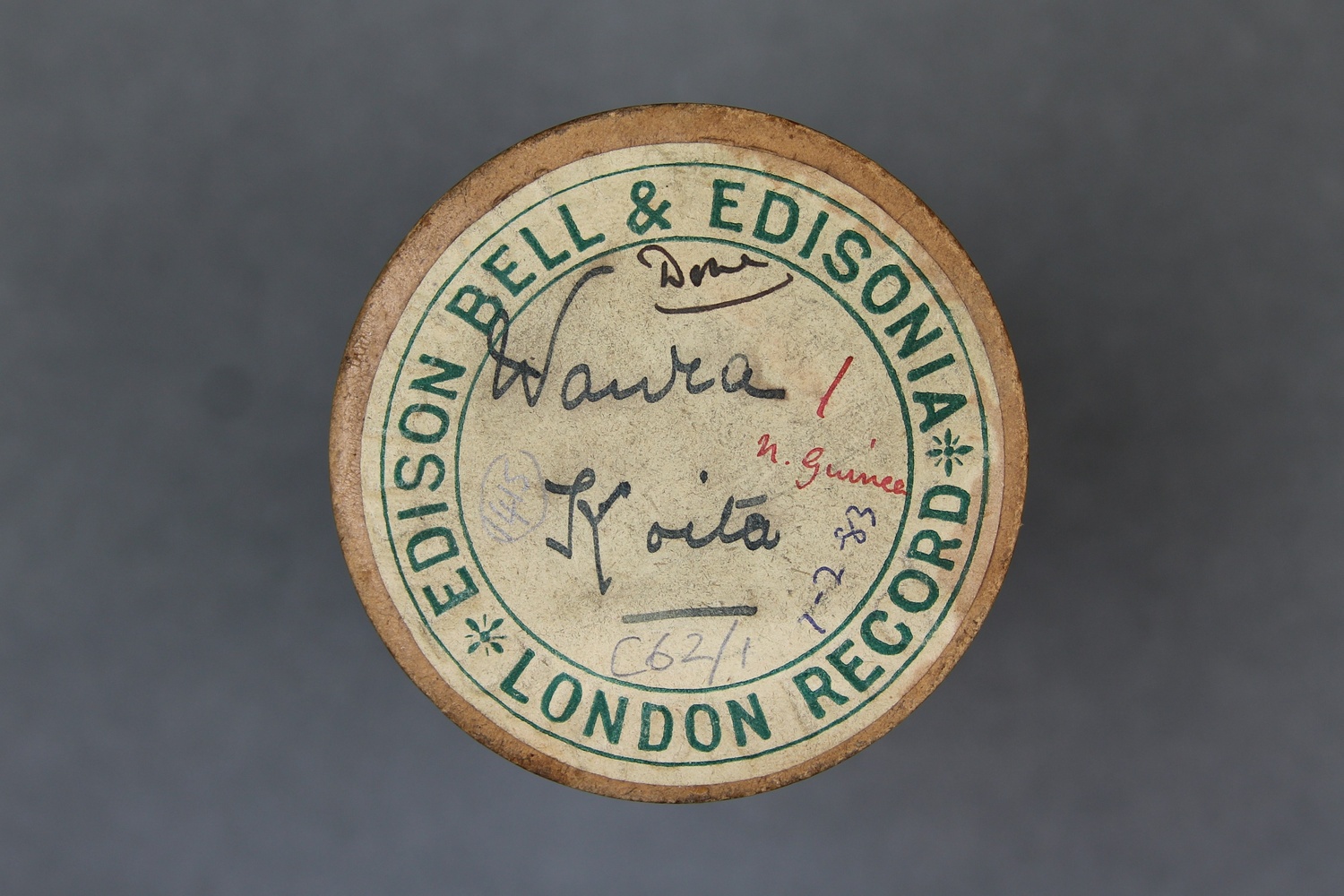 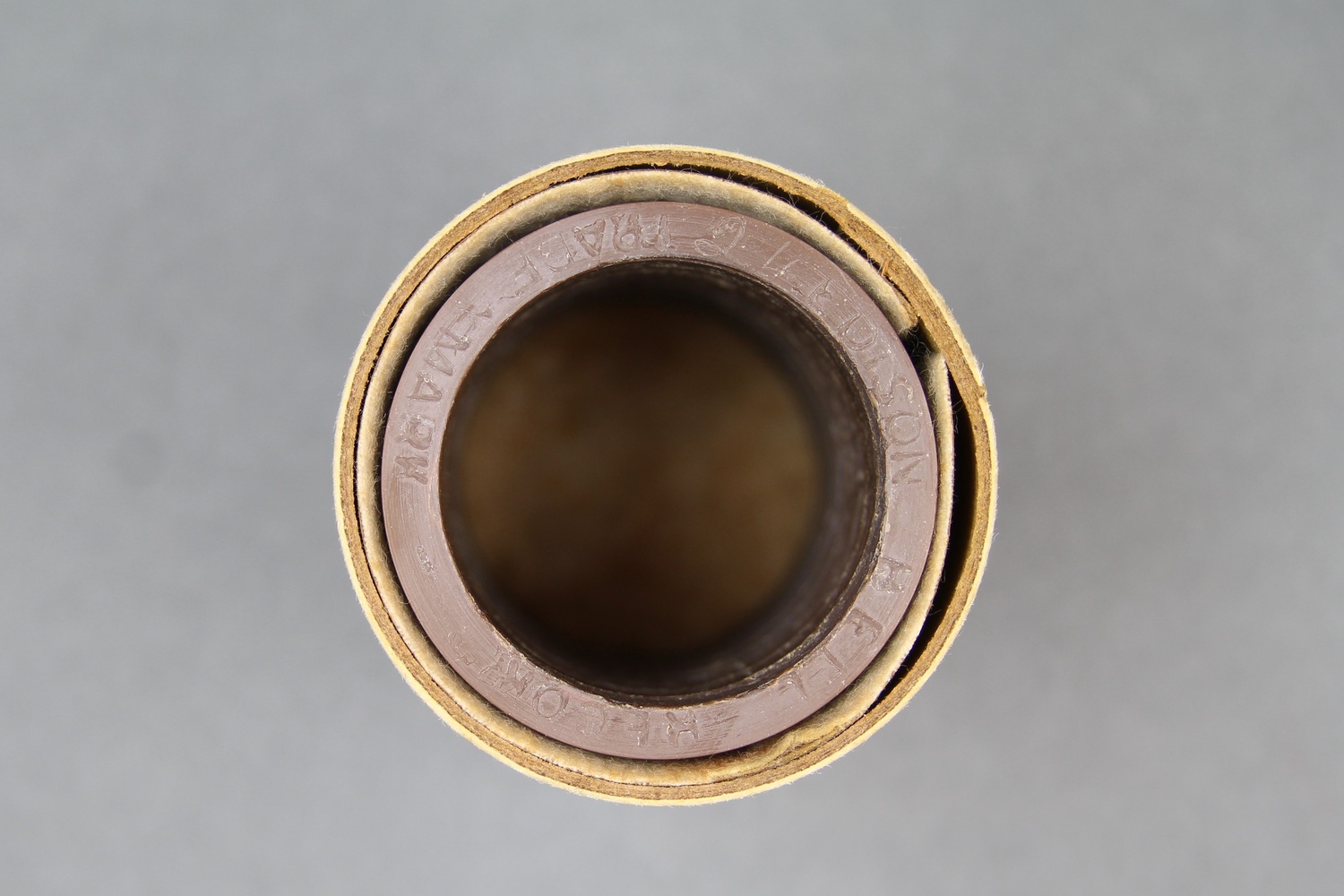     | This song is discussed and may be transcribed in Charles G. Seligmann, 'The Melanesians of British New Guinea', Cambridge University Press, 1910:151-152. | ||||||
| C62/1416 | Poru Koita | Kabur (singer, male) | Port Moresby, British New Guinea | October 1904 | 1. Announcement: "Poru, a Koita song, sung by Kabur[?] October 1904, Port Moresby." 2. Male vocal solo with percussion accompaniment. | Good quality recording but with some surface noise. | Koitabu | Field recordings | Seligman, Charles Gabriel | 3'29" | Daniels Ethnographical Expedition to New Guinea 1904 | Brown wax cylinder | Daniels Ethnographical Expedition to New Guinea 1904 Cylinder Collection (C62) | British Library | 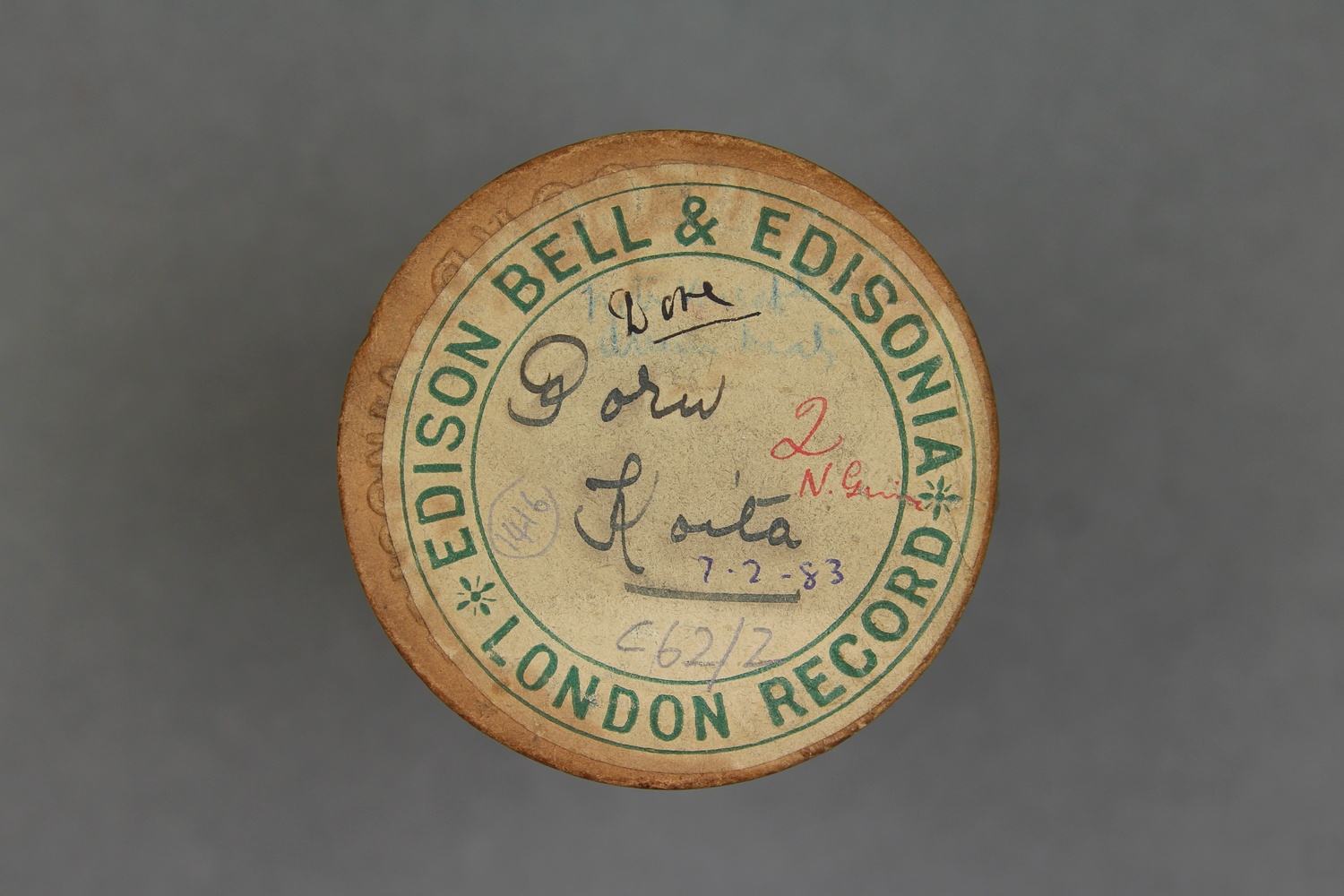      | This song may be discussed and transcribed in Charles G. Seligmann, 'The Melanesians of British New Guinea', Cambridge University Press, 1910:151-152. | ||||||
| C62/1417 | Berasi Koita | Unidentified (male chorus) | Port Moresby, British New Guinea | October 1904 | 1. Announcement: "Berasi - the Koita garden fencing song, sung at Port Moresby, October 1904." 2. Unaccompanied male vocal group. A song sung while fencing gardens; also a funeral dirge. | Good quality recording. | Koitabu | Field recordings; Garden fencing song | Seligman, Charles Gabriel | 3'51" | Daniels Ethnographical Expedition to New Guinea 1904 | Brown wax cylinder | Daniels Ethnographical Expedition to New Guinea 1904 Cylinder Collection (C62) | British Library |       | This song is discussed and may be transcribed in Charles G. Seligmann, 'The Melanesians of British New Guinea', Cambridge University Press, 1910:152-153. | ||||||
| C62/1418 | Ehona Lahato Koita | Igo Gow (singer, male) | Port Moresby, British New Guinea | October 1904 | 1. Announcement: "Lahato song, Ehona, sung by Igo Jow[?], Port Moresby, October 1904." 2. Unaccompanied male vocal solo. An ehona song. There are two photos of Igo Gow in the British Museum (Oc,B119.43 and Oc,B119.52). | Reasonable quality recording but with some distortion. | Koitabu or Motu | Field recordings; Trading song; Voyaging song | Seligman, Charles Gabriel | 3'43" | Daniels Ethnographical Expedition to New Guinea 1904 | Brown wax cylinder | Daniels Ethnographical Expedition to New Guinea 1904 Cylinder Collection (C62) | British Library | 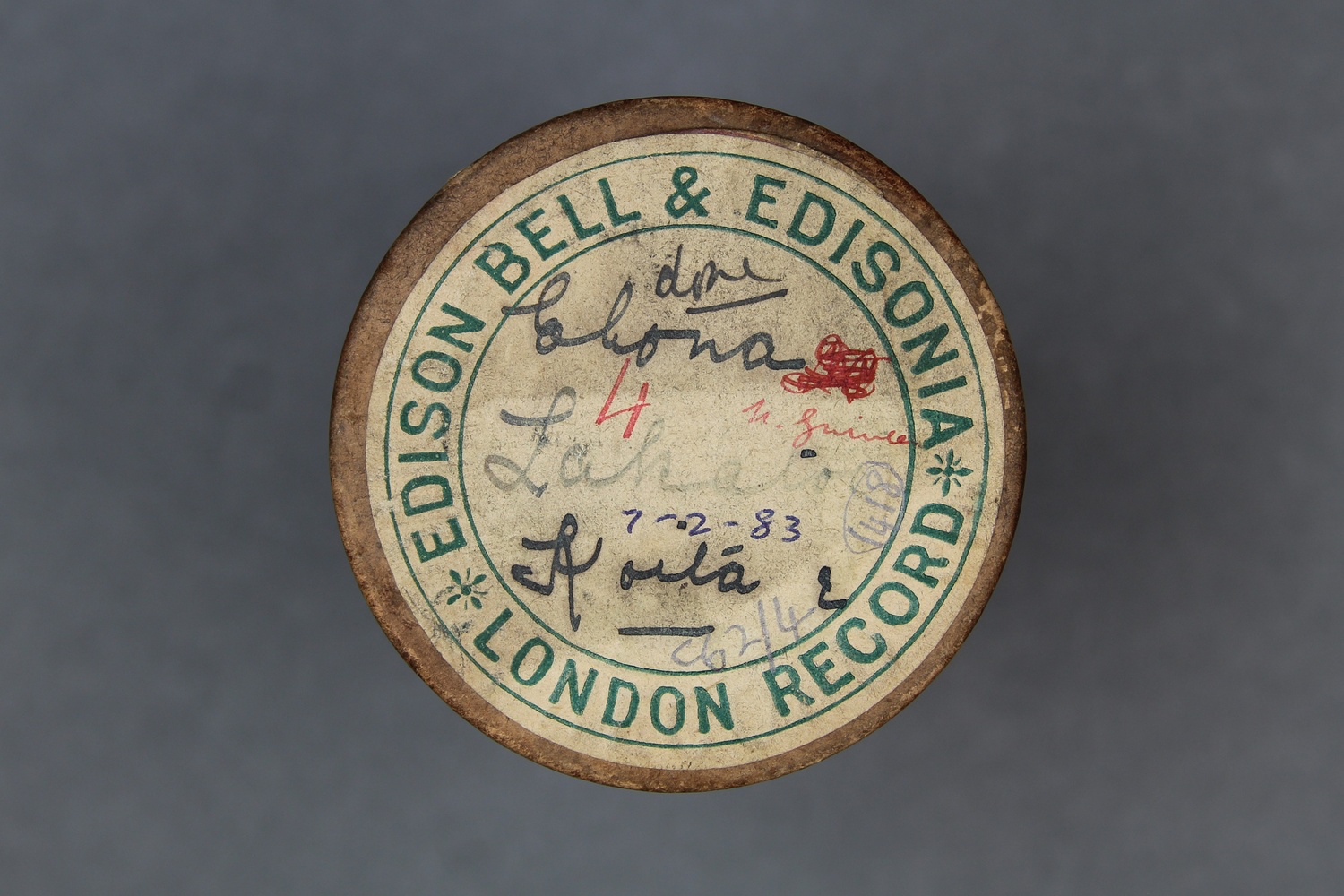      | This song may be discussed and transcribed in Charles G. Seligmann, 'The Melanesians of British New Guinea', Cambridge University Press, 1910:152. | ||||||
| C62/1424 | Hara Tabo Story | Ahuia Ova (narrator, male) | Port Moresby, British New Guinea | October 1904 | 1. Announcement: "The story of Hara Tabo, told by [indecipherable], Port Moresby, October 1904." 2. Unaccompanied male speech. | Good quality recording. | Koitabu | Field recordings; Speeches | Seligman, Charles Gabriel | 3'28" | Daniels Ethnographical Expedition to New Guinea 1904 | Brown wax cylinder | Daniels Ethnographical Expedition to New Guinea 1904 Cylinder Collection (C62) | British Library | 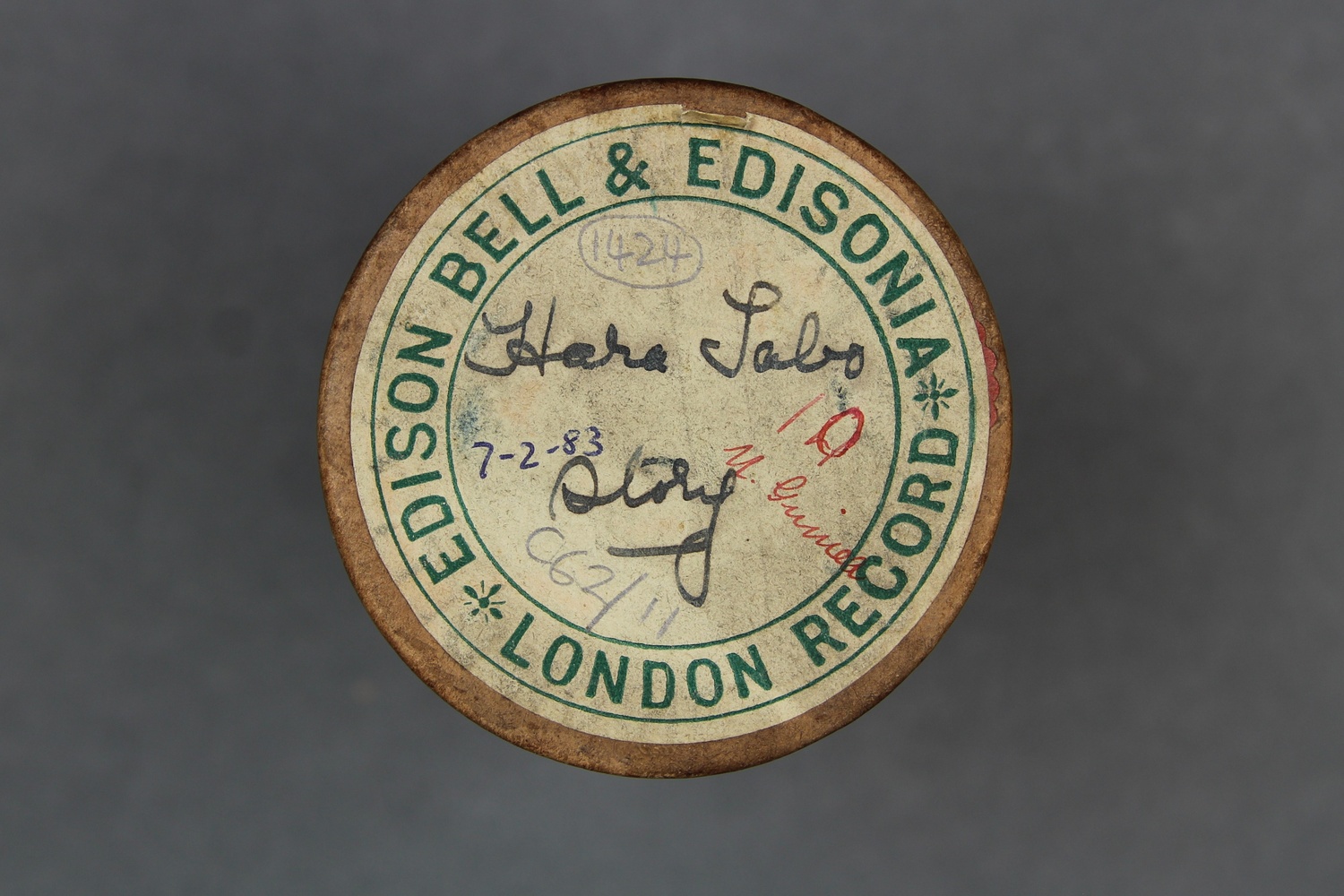      | This story is transcribed in Charles G. Seligmann, 'The Melanesians of British New Guinea', Cambridge University Press, 1910:183-185. | ||||||
| C62/1426 | (Solo) Kaime – Gore. A.H.D | Unidentified (singer, male) | Port Moresby, British New Guinea | 5 January 1904 ? | 1. Male vocal solo, accompanied by percussion. This is probably a historical ehona song concerning Kaimegore, a man who sailed a lakatoi canoe as part of the hiri trading voyage. | Good quality recording. | Motu and/or Koitabu | Field recordings; Trading song; Voyaging song | Seligman, Charles Gabriel | 2'11" | Daniels Ethnographical Expedition to New Guinea 1904 | Brown wax cylinder | Daniels Ethnographical Expedition to New Guinea 1904 Cylinder Collection (C62) | British Library | 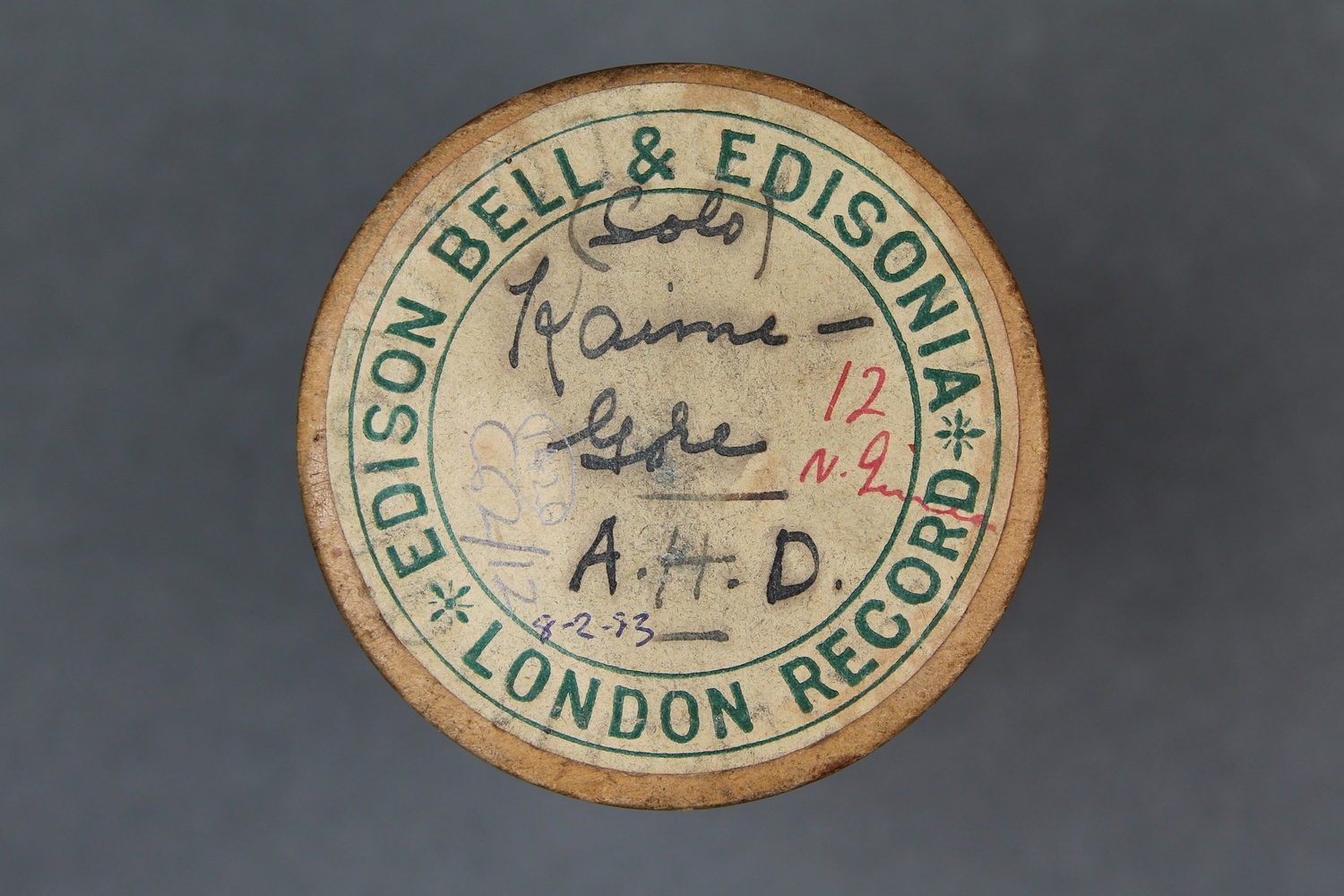      | Transcription of song in F. R. Barton's chapter in Charles Seligmann 'The Melanesians of British New Guinea', Cambridge Universtiy Press, 1910:117. | ||||||
| C62/1437 | Galo Galo. Motu | Unidentified (male chorus); unidentified (percussion) | Port Moresby, British New Guinea | October 1904 | 1. Announcement: "Galo Galo, a Motu song, sung when hauling captured dugung alongside the canoe, Hanuabada, October 1904." 2. Male vocal group with percussion accompaniment. Moto is presumably a typographical error and should read Motu. A dugong hunting song. | Good quality recording. | Motu | Field recordings; Dugong fishing song | Seligman, Charles Gabriel | 3'41" | Daniels Ethnographical Expedition to New Guinea 1904 | Brown wax cylinder | Daniels Ethnographical Expedition to New Guinea 1904 Cylinder Collection (C62) | British Library | 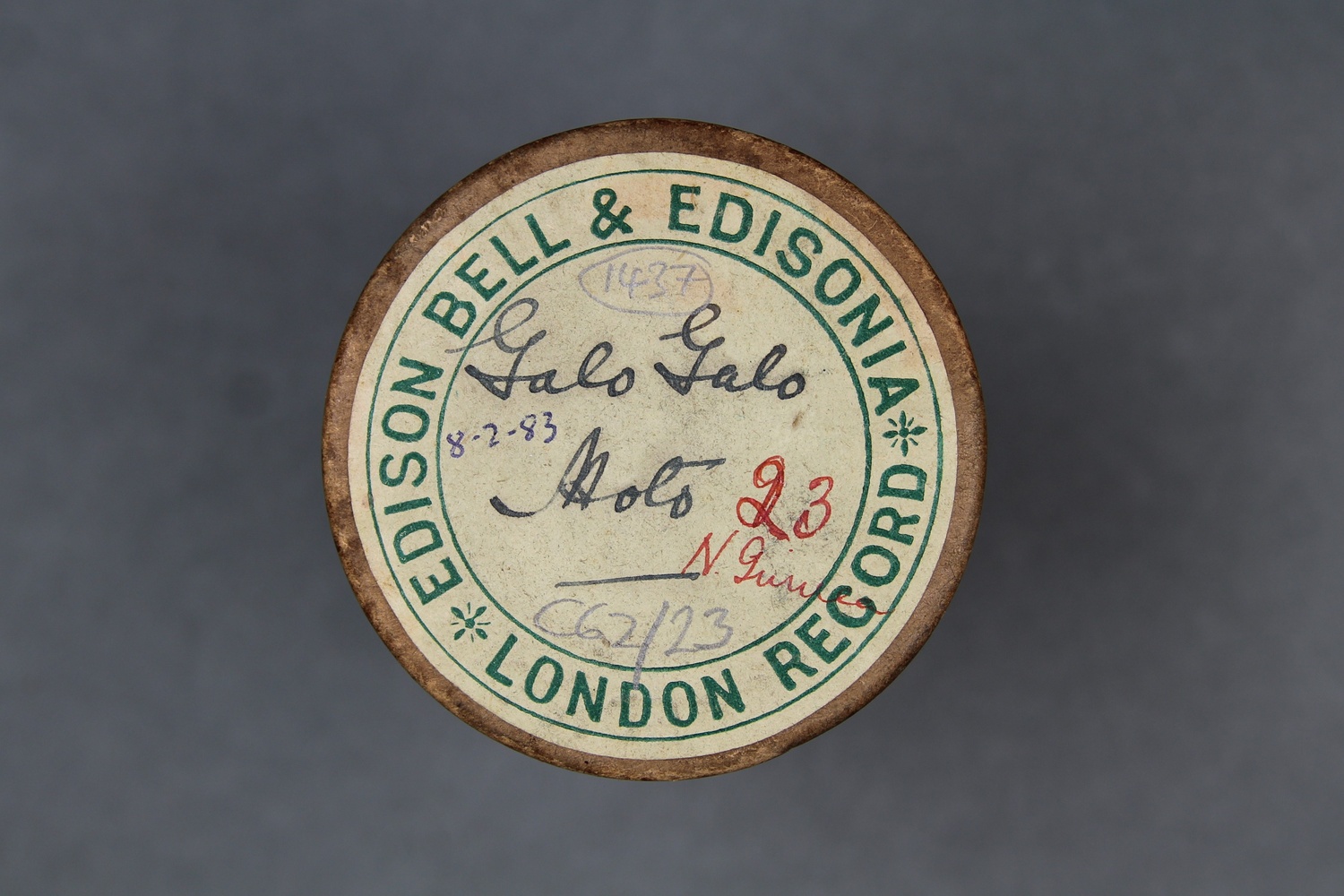      | |||||||
| C62/1438 | Bogi Bada | Unidentified (singer, male); unidentified (percussion) | Port Moresby, British New Guinea | 5 January 1904 | 1. Unaccompanied male vocal solo. 2. Male vocal solo with percussion accompaniment. This is a historical ehona song concerning a lakatoi canoe trip as part of the hiri trading voyage. | Reasonable quality recording but with surface noise. | Motu | Field recordings; Trading song; Voyaging song | Seligman, Charles Gabriel | 2'36" | Daniels Ethnographical Expedition to New Guinea 1904 | Brown wax cylinder | Daniels Ethnographical Expedition to New Guinea 1904 Cylinder Collection (C62) | British Library | 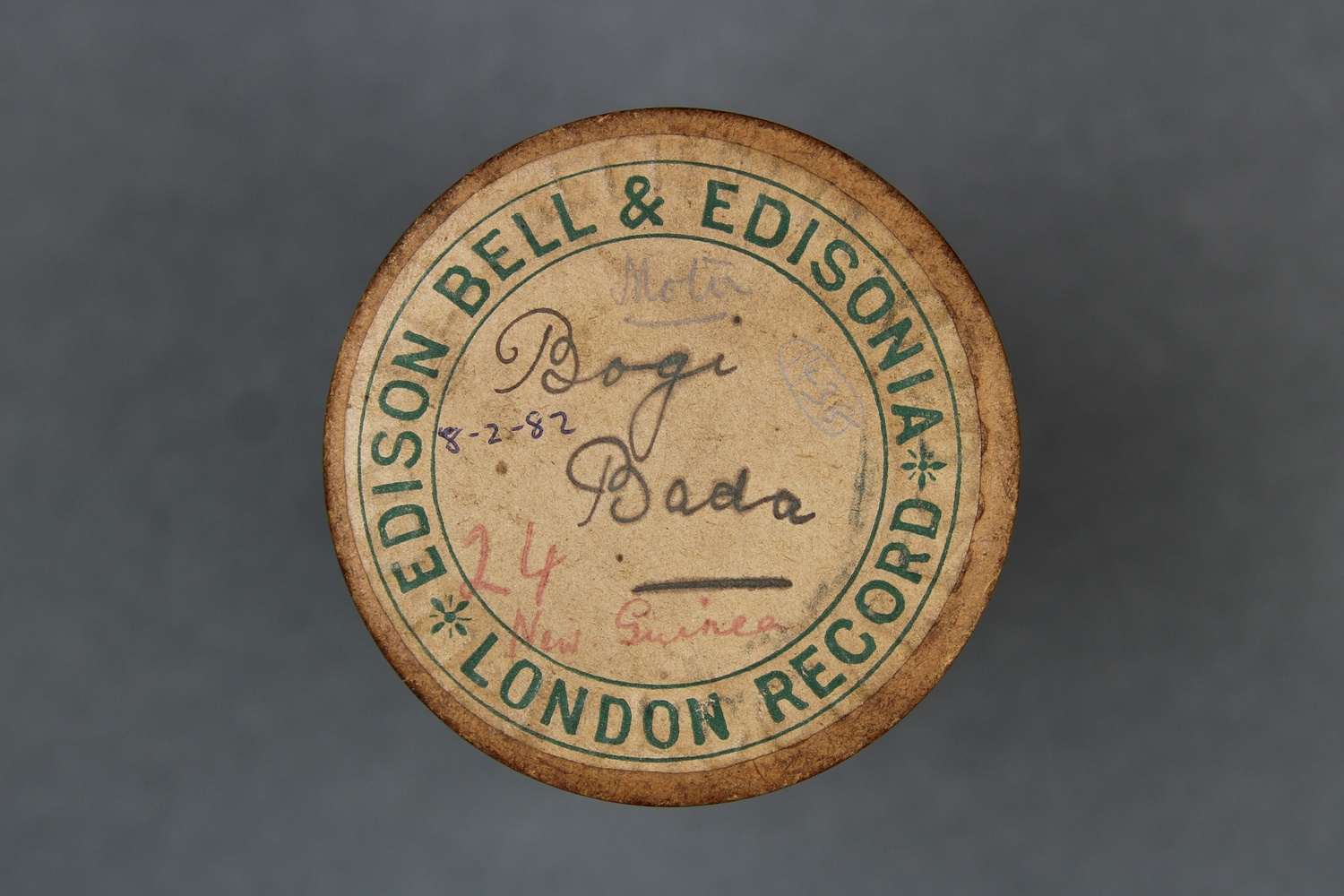      | Transcription of song in F. R. Barton's chapter in Charles Seligmann 'The Melanesians of British New Guinea', Cambridge Universtiy Press, 1910:116. | ||||||
| C62/1439 | Kaime Gore / Gaigo Lelova | Unidentified (male chorus); unidentified (percussion) | Port Moresby, British New Guinea | 5 January 1904 | 1-2. Male vocal group accompanied by percussion. This is probably a historical ehona song concerning Kaimegore, a man who sailed a lakatoi canoe as part of the hiri trading voyage. | Reasonable quality recording but with some surface noise. | Motu and/or Koitabu | Field recordings | Seligman, Charles Gabriel | 2'34" | Daniels Ethnographical Expedition to New Guinea 1904 | Brown wax cylinder | Daniels Ethnographical Expedition to New Guinea 1904 Cylinder Collection (C62) | British Library | 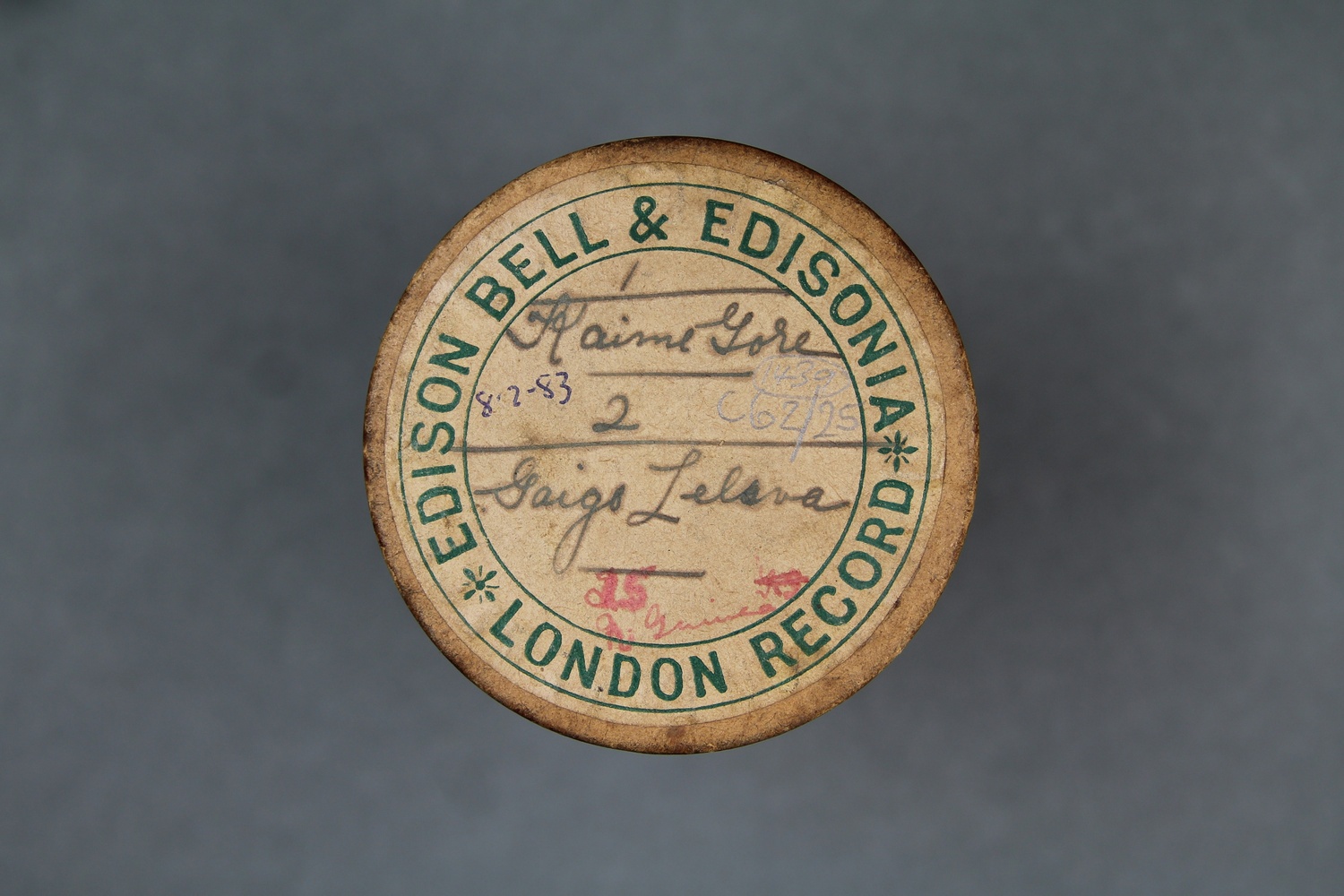      | Transcription of song in F. R. Barton's chapter in Charles Seligmann 'The Melanesians of British New Guinea', Cambridge Universtiy Press, 1910:117. | ||||||
| C62/1451 | Various calls. Koita | Unidentified (singer, male) | Port Moresby, British New Guinea | October 1904 | 1. Announcement: "[indecipherable] calling to [indecipherable] to be brought to [indecipherable]. 2. Unaccompanied male vocal solo. 3. "Hunting call, returning to village after catching fish." 4. Unacc. male vocal solo. 5. Call given from [indecipherable], signalling return of Lakatoi." 6. Unacc. male vocal solo. 7. "Call from [indecipherable] for folk to come and take baskets containing yams and portions of fish." 8. Unaccompanied male vocal solo. Calls related to hunting, fishing and sailing. | Good quality recording. | Koitabu | Field recordings; Speeches | Seligman, Charles Gabriel | 3'34" | Daniels Ethnographical Expedition to New Guinea 1904 | Brown wax cylinder | Daniels Ethnographical Expedition to New Guinea 1904 Cylinder Collection (C62) | British Library | 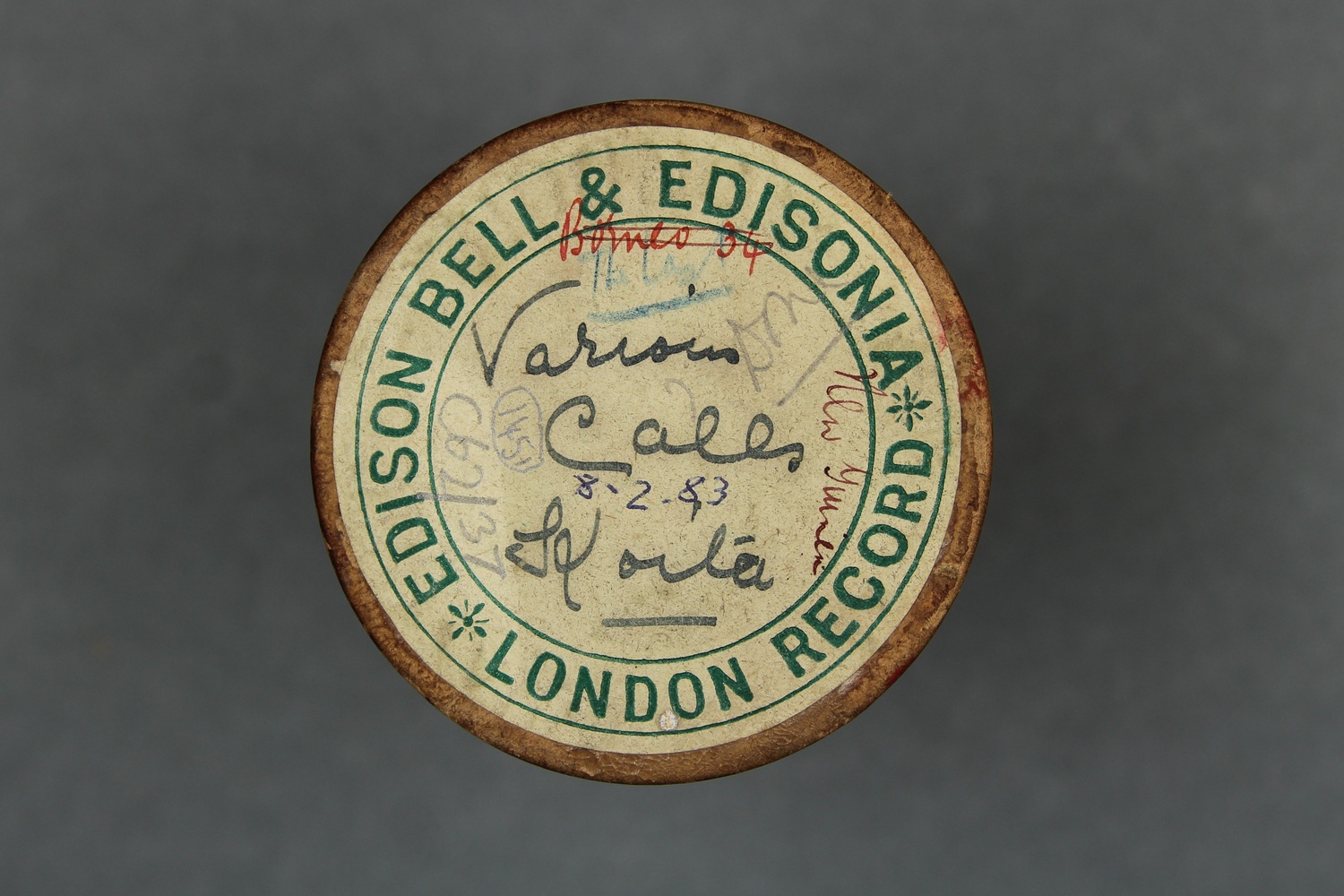      | |||||||
| C62/1452 | Ehona Koita | Igo Gow (singer, male) | Port Moresby, British New Guinea | October 1904 | 1. Announcement: "Ehona, a Koita and Motu dirge, sung by Igo[?], Port Moresby, October 1904." 2. Male vocal solo, accompanied by percussion. An ehona song. | Reasonable quality recording but with weak signal and some distortion. | Koitabu and/or Motu | Field recordings; Laments | Seligman, Charles Gabriel | 3'50" | Daniels Ethnographical Expedition to New Guinea 1904 | Brown wax cylinder | Daniels Ethnographical Expedition to New Guinea 1904 Cylinder Collection (C62) | British Library |       | This song may be discussed and transcribed in Charles G. Seligmann, 'The Melanesians of British New Guinea', Cambridge University Press, 1910:152. | There are two photos of Igo Gow in the British Museum (Oc,B119.43 and Oc,B119.52). |











